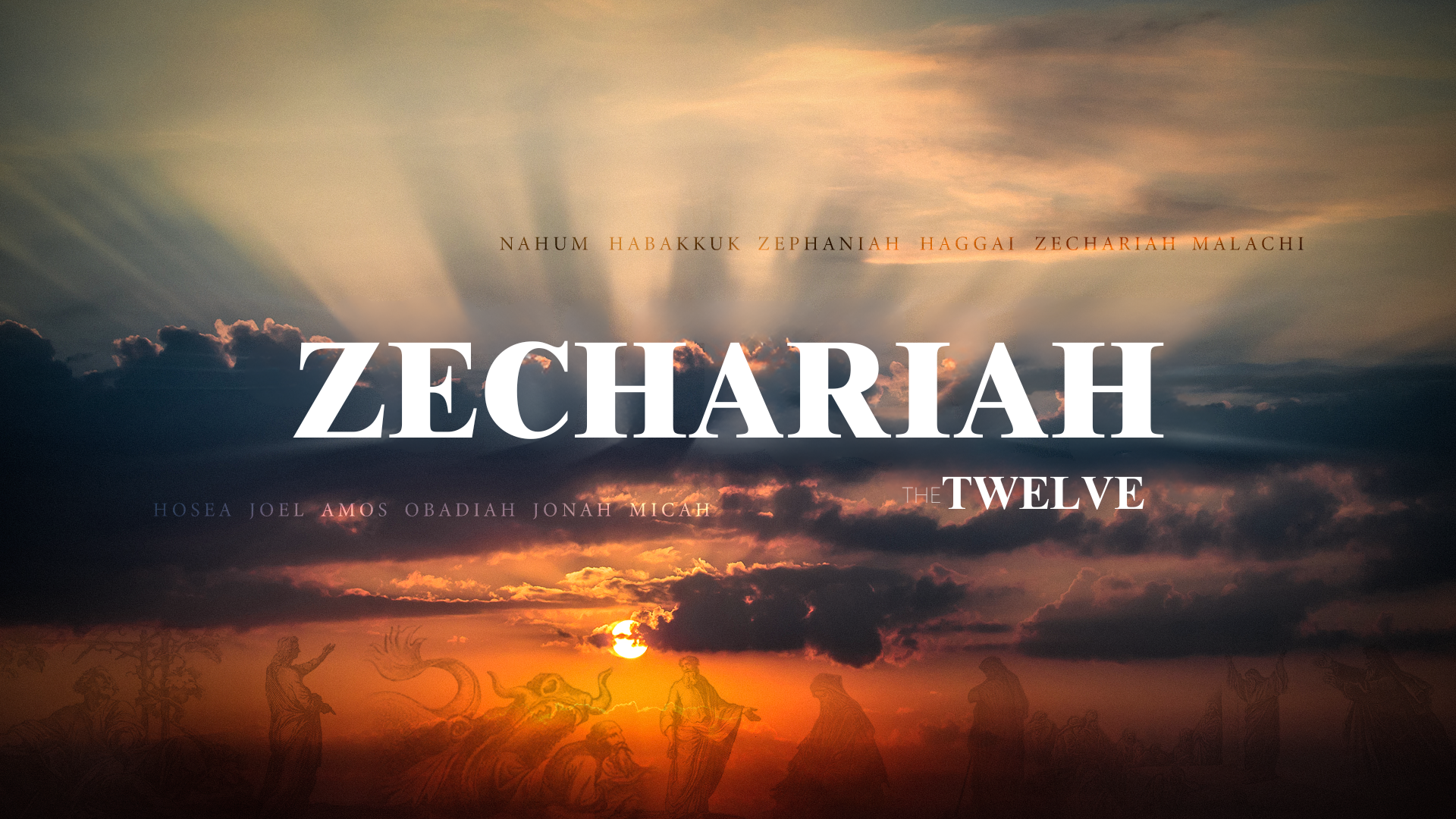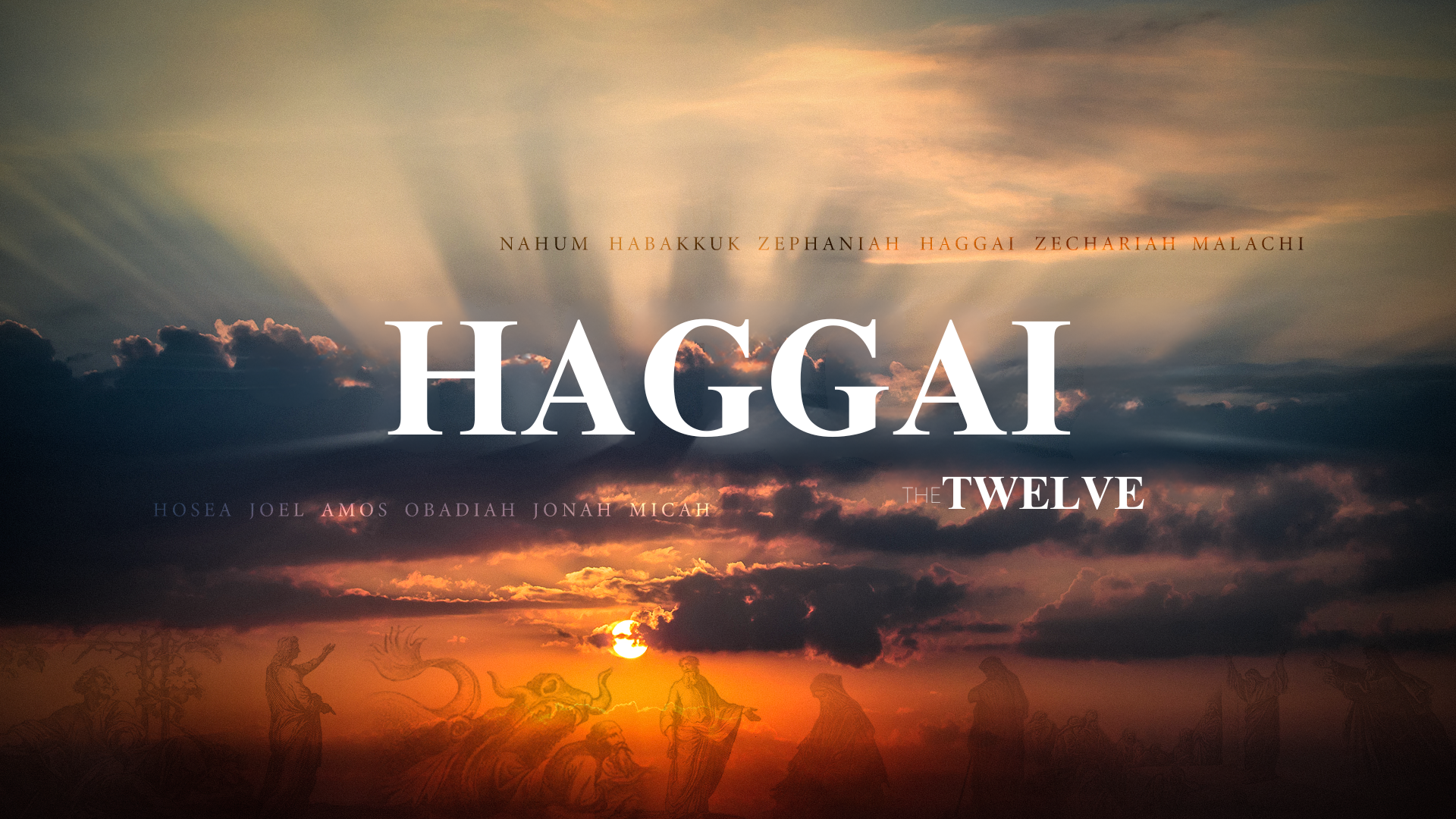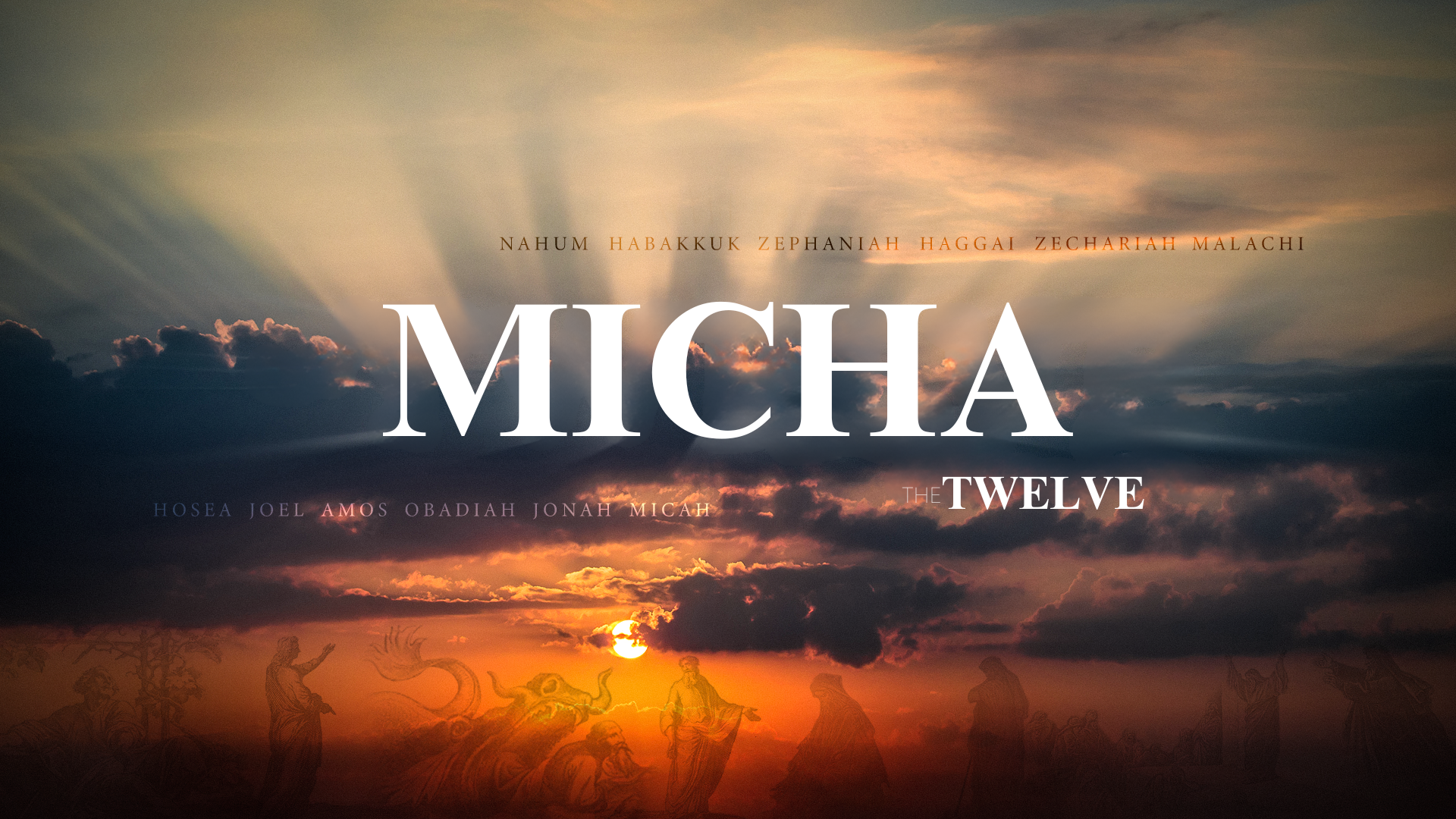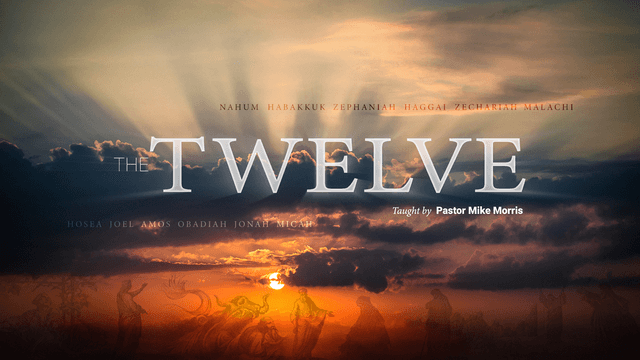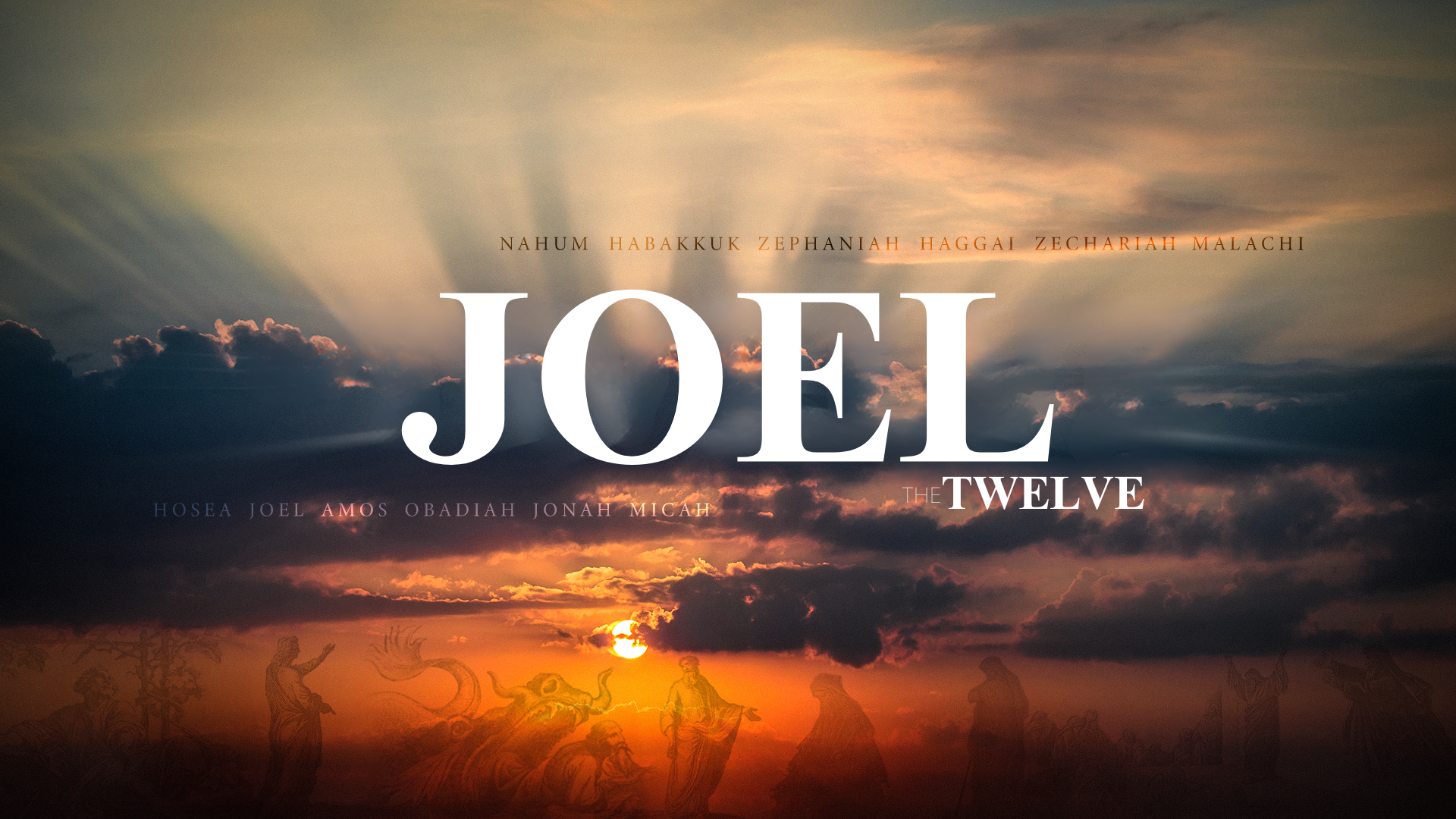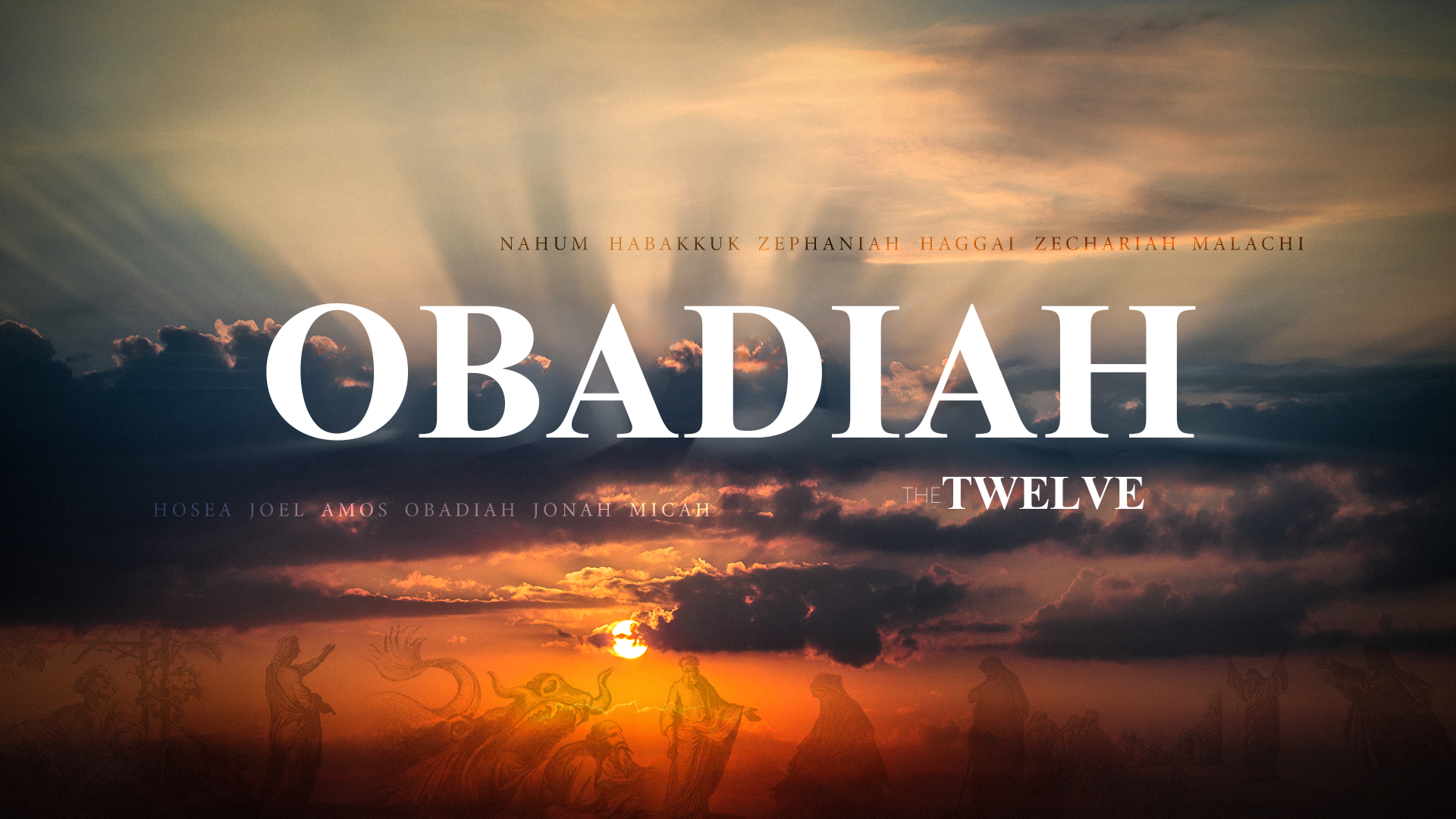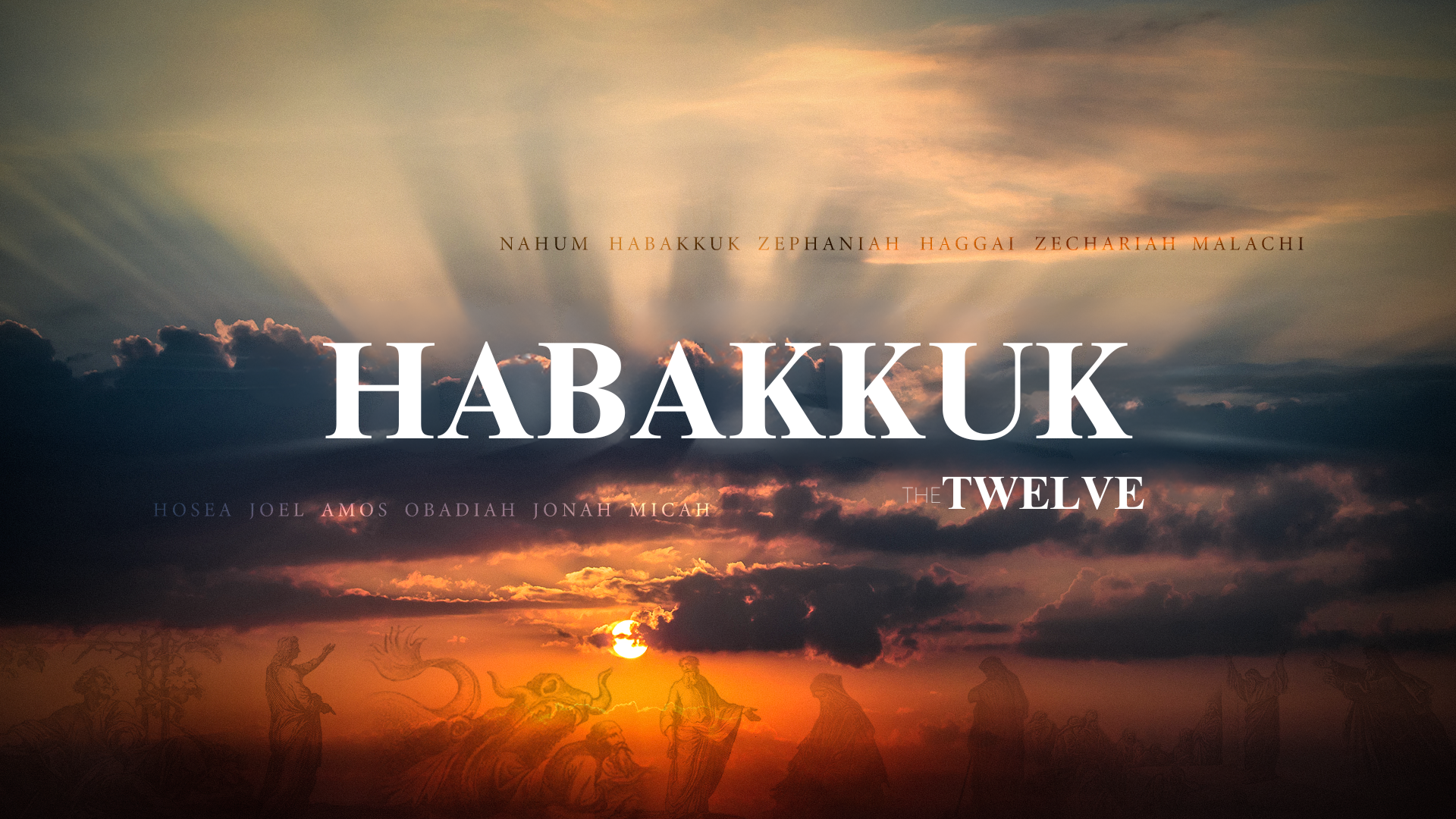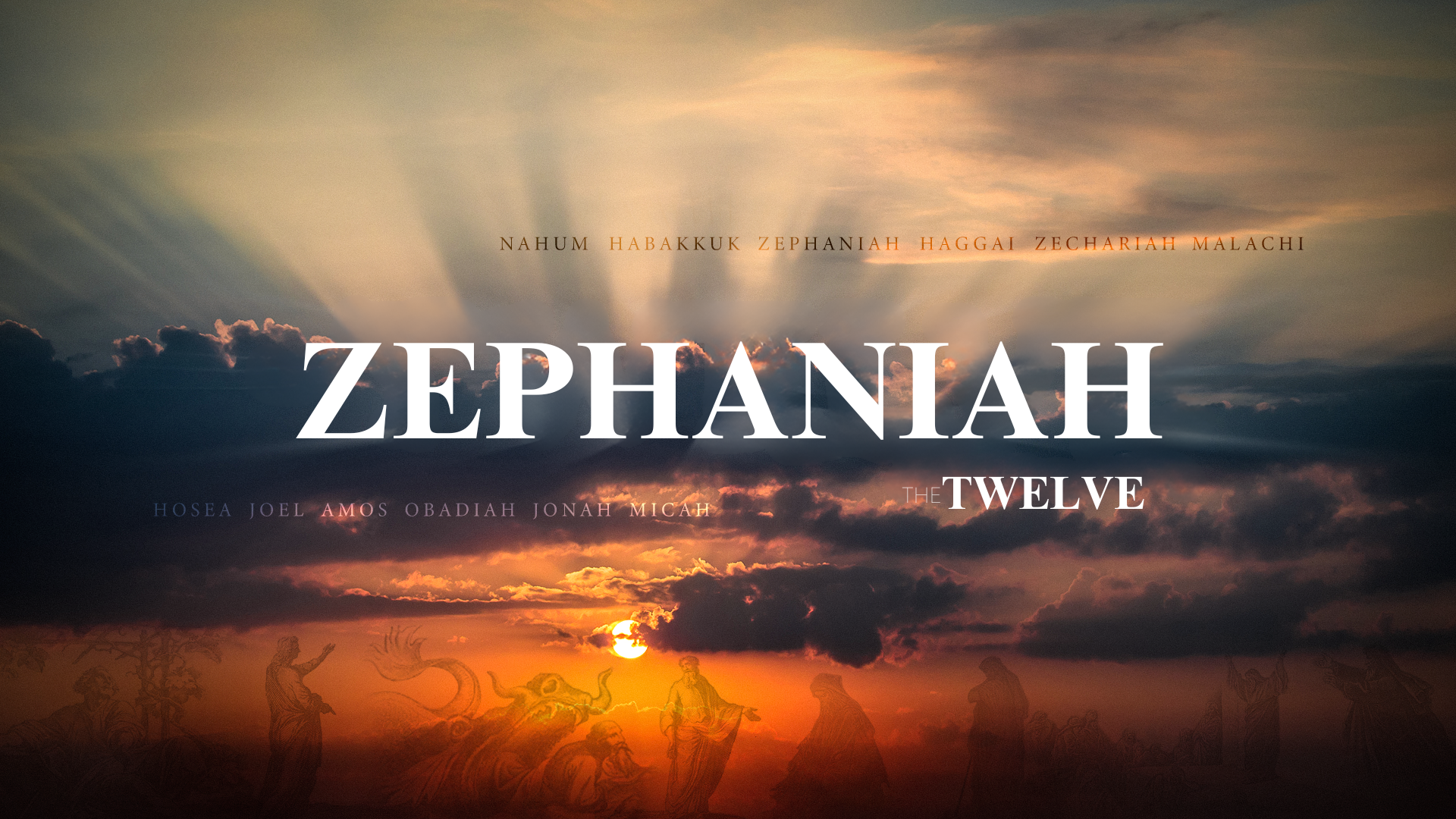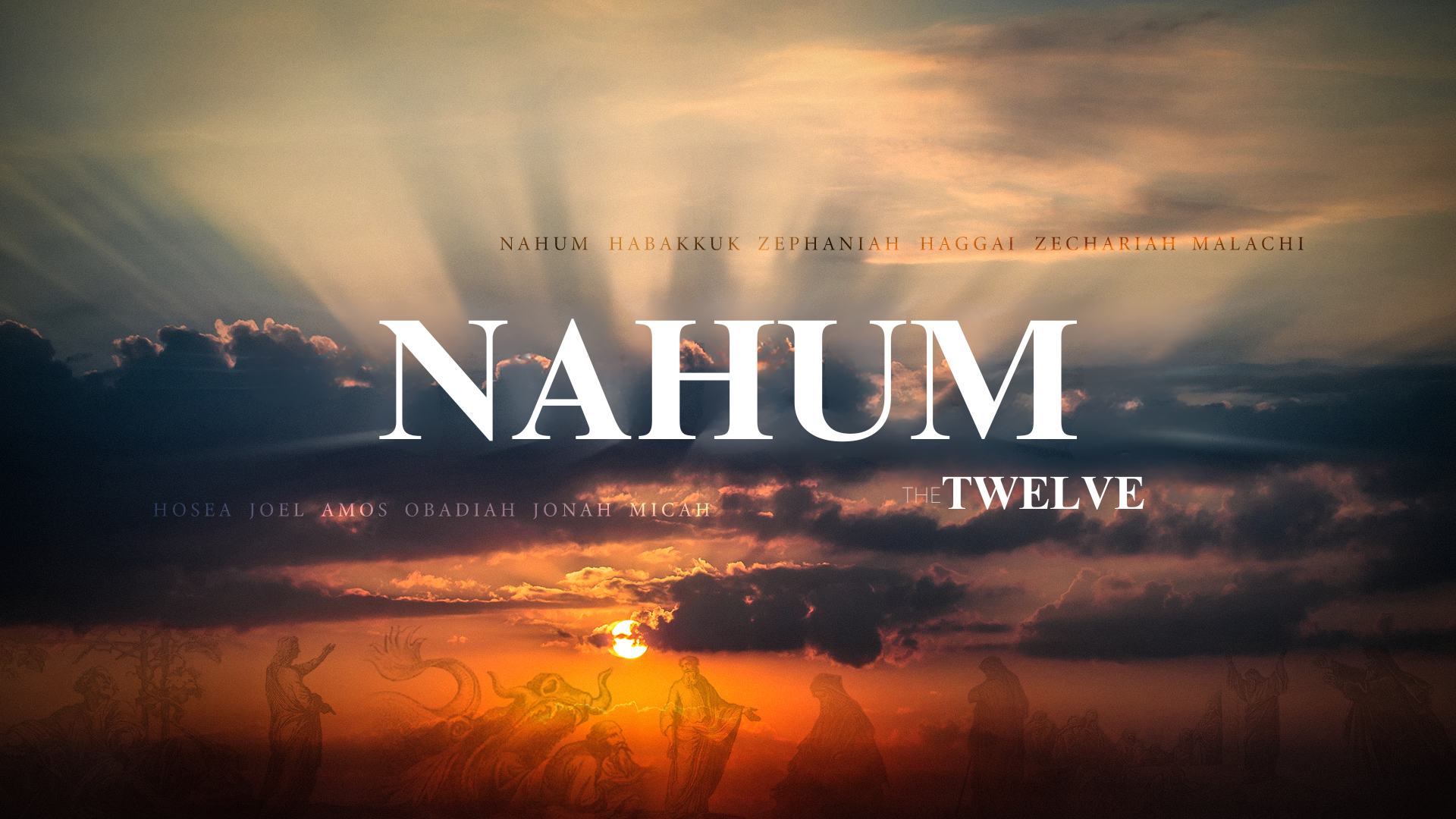MANUSCRIPT
The book of Micah is the transitional prophecy of the Twelve, the bridge between the prophets who spoke primarily to Israel in the north and those who spoke primarily to Judah in the south...with Micah’s prophecy, the leadership and people of Judah are beginning to hear the clear warning of God prior to the judgment of the Babylonian exile...
As chapter 7 opens, the style of writing changes, from a structured covenant lawsuit to a style of writing with which we are probably more familiar: a lament...if I were to put a title on this passage, it would be this: “From Lament to Praise”.... but before we move to the praise, we will linger a while feeling the depth of Micah’s pain as he pours out his lament before God...a lament is the most intense expression of grief we find in the Bible...40 percent of the psalms are psalms of lament...one entire book is known by the name “Lamentations”...why do we find such passionate pain in the word of God? Because such grief, and the laments that express it, are part of human experience...we all cry and suffer and weep in ways for which we can’t find adequate words...the real questions are these...why will we lament? And when we lament, how will we respond to God?
In this chapter, we listen as Micah pours out his pain and suffering in the first six verses, then we hear his focus change in the second portion of the text, verses 7 through 13, as Micah speaks of his faith and trust in the Lord, and he looks beyond the destruction of Jerusalem to God’s victory over sin, death, and hell...
Let’s jump into the text at verse 1...
Woe is me! For I have become
as when the summer fruit has been gathered,
as when the grapes have been gleaned:
there is no cluster to eat,
no first-ripe fig that my soul desires.
2 The godly has perished from the earth,
and there is no one upright among mankind;
they all lie in wait for blood,
and each hunts the other with a net.
3 Their hands are on what is evil, to do it well;
the prince and the judge ask for a bribe,
and the great man utters the evil desire of his soul;
thus they weave it together.
4 The best of them is like a brier,
the most upright of them a thorn hedge.
The day of your watchmen, of your punishment, has come;
now their confusion is at hand.
5 Put no trust in a neighbor;
have no confidence in a friend;
guard the doors of your mouth
from her who lies in your arms;
6 for the son treats the father with contempt,
the daughter rises up against her mother,
the daughter-in-law against her mother-in-law;
a man's enemies are the men of his own house.
Micah begins with a statement that might easily be misunderstood by readers today, but which his first audience would have understood very well...”Woe is me!” In our culture, this sounds like whining or complaining...a statement that is more likely to elicit scorn than sympathy...it literally translates to “What misery is mine!” ... it is the heart cry of a person in agony, whose life is crushed, who has lost everything that matters in life...Micah says “I have become as when...” ... what is he saying?
I think if we listen carefully to the prophet’s heart, we will hear a deep sense of emptiness and loss, of desolation and barrenness...a much worse distress than finding the summer fruit, the grapes, olives, and figs, already gone, the vines and trees stripped bare...we learn what breaks Micah’s heart in verses 2 through 6...
In the same way a vineyard owner looks for the summer fruit, Micah looks for the righteous and upright, the good and godly people of Judah...but they have perished, they have disappeared, they’re gone...
You’ll recall the prophet Amos using a wordplay between similar sounding words rendered “summer fruit” and “end” in his prophecy -- this lament in Micah’s prophecy describes what Amos predicted...Amos 8.1-2...
This is what the Lord God showed me: behold, a basket of summer fruit. 2 And he said, “Amos, what do you see?” And I said, “A basket of summer fruit.” Then the Lord said to me, “The end has come upon my people Israel; I will never again pass by them.”
This is a sorrowful picture of a shattered and broken Jerusalem...the people of Judah have thrown away all the precious blessings of God and are now left utterly desolate, on the verge of destruction at the hands of the Assyrians and the Babylonians...
Verses 2 through 6 are a mournful statement about what a society looks like when everything falls apart...this isn’t just a single event in time, this is a general description of humanity under great stress, such as external attacks or internal disintegration or both...it was like that in Micah’s day, it has been like that in our day, and it will be like that in the final days before Christ returns to establish His kingdom in its fullness...
Last week, I referenced Romans 3.18 as an example of the spiritual condition of the wicked, that they do not fear God, but we must look to Romans 3 again this week to see the moral and ethical condition of the wicked...Romans 3.10b-12...
“None is righteous, no, not one;
11 no one understands;
no one seeks for God.
12 All have turned aside; together they have become worthless;
no one does good,
not even one.”
The theme is picked up by Jeremiah, too...idolatrous sin bringing about injustice and ultimately the breakdown of human society...Jeremiah 5.1-2, 3b
Run to and fro through the streets of Jerusalem,
look and take note!
Search her squares to see
if you can find a man,
one who does justice
and seeks truth,
that I may pardon her.
2 Though they say, “As the Lord lives,”
yet they swear falsely. ...
They have made their faces harder than rock;
they have refused to repent.
Why does Micah lament? Why is he broken as he looks upon the hill of Zion, on Jerusalem, knowing what will befall her at the hands of her enemies? Three reasons...
First, the righteous have died and are no more...
2 The godly has perished from the earth,
and there is no one upright among mankind;
they all lie in wait for blood,
and each hunts the other with a net.
Instead of finding good and righteous people, Micah sees that the wicked now rule...they prey upon others as thieves and murderers would, as they wait in ambush for the innocent...the wicked pursue their own gain by taking from others, they value their own wealth and well-being above the property and even the life of those who are their victims...the wicked will take what they want from others without regard for them, the community, the nation, or their covenant God...
The second reason for Micah’s lament is found in the next verse...the corruption of leadership...
3 Their hands are on what is evil, to do it well;
the prince and the judge ask for a bribe,
and the great man utters the evil desire of his soul;
thus they weave it together. 4 The best of them is like a brier,
the most upright of them a thorn hedge.
The day of your watchmen, of your punishment, has come;
now their confusion is at hand.
Those who are entrusted to lead the nation -- the prince, the judge, and the great man -- are not being the leaders that God meant them to be, nor the leaders the nation needs them to be...like the violent men in verse 2, these men are concerned only for their own wealth and power, fulfilling their “evil desires” -- and they are skilled at their own brand of wickedness...the economic, political, maybe even legal kind...they seek bribes to achieve their ends, selling influence and power for a price...collaborating together, weaving together, their wickedness for their own desires...Micah’s illustration is so appropriate -- the best of this miserable lot of evil men is like a thorn hedge -- fruitless, useless for any good purpose, and dangerous to be near...
Proverbs 4.14-17 from the King James Version says it perfectly...
14 Enter not into the path of the wicked, and go not in the way of evil men.
15 Avoid it, pass not by it, turn from it, and pass away.
16 For they sleep not, except they have done mischief; and their sleep is taken away, unless they cause some to fall.
17 For they eat the bread of wickedness, and drink the wine of violence.
The third cause of Micah’s lament is the unraveling of trust in relationships...
5 Put no trust in a neighbor;
have no confidence in a friend;
guard the doors of your mouth
from her who lies in your arms;
6 for the son treats the father with contempt,
the daughter rises up against her mother,
the daughter-in-law against her mother-in-law;
a man's enemies are the men of his own house.
Look at Micah’s warnings: “put no trust in...” “have no confidence in...” “watch your words around...” -- trust, personal reliance, and faithfulness have been lost in all relationships...look at the order in which Micah names these social bonds, from more distant to the closest...neighbors can’t be trusted, not even close friends, not even your own flesh and blood, your husband or wife...even within families, faith is broken between parents and children, and the closest relationships of marriage...he summarizes this societal disintegration in the last phrase of verse 6: a man's enemies are the men of his own house...even those with whom you share a home, your closest family members and companions, can’t be trusted to honor those close bonds, but instead will turn on one another for their own safety and profit...
Jeremiah, the weeping prophet, saw the same breakdown of relationships in Jeremiah 9.4-5a, 6b...
Let everyone beware of his neighbor,
and put no trust in any brother,
for every brother is a deceiver,
and every neighbor goes about as a slanderer.
5 Everyone deceives his neighbor,
and no one speaks the truth;
they refuse to know me, declares the Lord.
Micah was not alone...there was another prophet who would lament over Jerusalem...our Lord Jesus, whose heart breaks over His wayward city...Luke 19.41-42...
41 And when he drew near and saw the city, he wept over it, 42 saying, “Would that you, even you, had known on this day the things that make for peace! But now they are hidden from your eyes.
Sin and selfishness are so terrible, so destructive, even God laments over it...
But after this heartbreaking lament for himself, and for his people, and for his nation, how does Micah respond to this overwhelming sense of tragedy and calamity? Look at verse 7...
7 But as for me, I will look to the Lord;
I will wait for the God of my salvation;
my God will hear me.
Where does Micah find hope? Again, we find a triplet to describe his reasons...
First, he will look to the Lord...we know the importance of where we choose to fix our eyes, don’t we? Like Peter on the raging Sea of Galilee, we can look down and around, at the turmoil and confusion and chaos of the present moment, and we can feel ourselves starting to sink into despair...but not Micah...his eyes will be on the Almighty God, his rock and his redeemer...he will not set his eyes on the lost leaders of yesterday, nor the corrupt leaders of his day, nor even his closest friends and family...he will follow the words of the Psalmist, who said Turn my eyes from looking at worthless things; (Psalm 119.37a)...instead, he will set his gaze on God, his fortress in times of trouble...
Second, he will wait for the God of his salvation...much is written in the word about waiting upon the Lord, much of that in the Psalms...waiting on the Lord has the quality of focusing on Him, as we are attentive to Him and His work in and around us; the act of waiting on God also reminds us not to run ahead of our Good Shepherd, away from His side and into danger; and waiting is what a faithful person does, trusting fully in the Lord, for one does not wait for one who is not deeply trusted and loved...hear the word of Lamentations 3.25-26...
25 The Lord is good to those who wait for him,
to the soul who seeks him.
26 It is good that one should wait quietly
for the salvation of the Lord.
And third, Micah will trust in the Lord to hear his lament and answer him...the heart of a believer can say with Micah, my God will hear me...for we know that the reason for God’s faithfulness in attending to the needs of His children is not who we are, but Who He is...He is faithful to us because He is a faithful God...it is His character and nature which are the ground of our trust in Him, not our own righteousness and worth, for we find our righteousness and worth in Him, not in ourselves...is anyone more trustworthy, more faithful, more perfectly truthful, than our God? Isaiah 26.4 declares it...
4 Trust in the Lord forever,
for the Lord God is an everlasting rock.
When we are heartbroken, where do we turn? What do we do? Look to the Lord -- wait for Him -- and trust that He hears your cries...for we trust in Him because of Who He is.
The remainder of this text today is a song of faithful reliance in God as those who are under His hand of severe judgment, those whose hearts cry out in lament before their God, yet praise Him for His goodness and uprightness.. listen to these words of strong confidence...
8 Rejoice not over me, O my enemy;
when I fall, I shall rise;
when I sit in darkness,
the Lord will be a light to me.
9 I will bear the indignation of the Lord
because I have sinned against him,
until he pleads my cause
and executes judgment for me.
He will bring me out to the light;
I shall look upon his vindication.
10 Then my enemy will see,
and shame will cover her who said to me,
“Where is the Lord your God?”
My eyes will look upon her;
now she will be trampled down
like the mire of the streets.
The voice here could be the voice of Micah himself, but a different speaker seems to fit the text better -- the personification of the city, of Jerusalem herself...and the setting is that of a prison, even a dark dungeon, in which Jerusalem finds herself...from that dungeon she speaks...
The enemy addressed here in verse 8 is probably Edom, their southern neighbor allied with Babylon in the destruction of Jerusalem and who rejoiced in the suffering of the people...many passages call out to God for Edom’s judgment, including Psalm 137, Amos 1, and Ezekiel 25...Edom had become a type of the enemies of Israel, although the founders of these two nations, Esau and Jacob, later Israel, were brothers, common descendants from Isaac; those who should have been brothers were enemies in Micah’s day...giving us an echo of verse 6, that a man’s enemies are those of his own household...but don’t miss the warning here to the enemy...”don’t rejoice over me...” ... we’ll return to that later...
But compared to the first passage, this passage is entirely different...judgment has now come upon the nation in full...Jerusalem is held captive by a foreign power, mocked by those around her, confined and still, in the darkness...she’s exactly where she needs to be for the Lord to restore her to Himself...
And now her lament has been transformed to confident hope...she acknowledges her sin...but follows that confession with trust in her God...
8 Rejoice not over me, O my enemy;
when I fall, I shall rise;
when I sit in darkness,
the Lord will be a light to me.
9 I will bear the indignation of the Lord
because I have sinned against him,
until he pleads my cause
and executes judgment for me.
He will bring me out to the light;
I shall look upon his vindication.
Even in her dark prison cell, she can see the light of her God...before, she rejected Micah’s call to repent of her sins of idolatry and injustice, and return to the Lord...now, she knows she has fallen, she acknowledges her just punishment of devastation and exile, but the response now is strikingly different...she does not push back against the judgment she’s experiencing...instead, she willingly bears the indignation of the Lord...she knows her sin, but she also trusts that the Lord will be her defense...He has judged her, but He will also judge those who make her desolate...she is in the darkness now, but her Lord will bring her out of the prison back into the light, to see her vindication, her justification...it reminds me of the inscription on the Reformation Wall in Geneva, Switzerland...”Post Tenebras, Lux” -- “After Darkness, Light”
And when that day comes, after her judgment is complete, Jerusalem will look upon her enemies...no longer would the enemy rejoice over the fallen people of God...verse 10...
10 Then my enemy will see,
and shame will cover her who said to me,
“Where is the Lord your God?”
My eyes will look upon her;
now she will be trampled down
like the mire of the streets.
Here we begin to see another side of the character of God...He is certainly a God of the covenant, Who will hold His people accountable for their sins...but He is also a God of justice, who will not let evil triumph over good, Who has the capacity and the will and the obligation from His nature to judge sin, and Who will uphold and vindicate His people against their enemies...those enemies will be held accountable for, and punished for, their cruelty, and part of their punishment will be to see the promised vindication of those whom they persecuted...
And this is another of the important truths we learn from Micah...there is a good and proper tension we feel between the justice and wrath of God, and the love and mercy of God...as Stephen Um has said, “The God of the Bible cares enough to judge you and to save you, at unimaginable cost to himself. ”
In verses 11 through 13, Micah continues the description of the restoration God brings to His people...
11 A day for the building of your walls!
In that day the boundary shall be far extended.
12 In that day they will come to you,
from Assyria and the cities of Egypt,
and from Egypt to the River,
from sea to sea and from mountain to mountain.
13 But the earth will be desolate
because of its inhabitants,
for the fruit of their deeds.
“In that day” -- the day of the restoration of God’s people -- the walls will be rebuilt...not the ramparts so much as the normal enclosures that are part of community life...and their boundary will be extended, both to grant them a suitable home, and to place them far removed from any threats...the geographical markers in verse 12 are the full extent of what Micah would understand as “the land” ... this was partially fulfilled as Judah returned from exile in Babylon, and will be finally and fully realized in the new heaven and new earth, and the heavenly Jerusalem...but in contrast, “the earth” -- as opposed to the city of God -- will be made desolate, judged for the wickedness of their sin...
There is so much to apply to our lives from this passage that I can’t cover it all...let me urge you to spend time meditating on and considering this seventh chapter...we learn so much here about the character of our heavenly Father that we need to dwell here for a while...and we still have one more week as we finish...
But as we think about these things, let us consider some questions...
What causes us to lament before the Lord? Is it only personal difficulty, or even suffering within our circle of family and friends? Or, like Micah, and Jesus, are we heartbroken over the ungodliness in our world, the corruption of our leaders, and the destruction of our society caused by sin and unrepentant sinners? May God forgive us for our indifference...and may our perspective widen to see our world as God does, and seeing it, to weep...
What should we do when everything is falling apart? Like Micah, trust in the Lord...for ultimately only He is trustworthy...recognize that our faith must rest in Him, not other people, even those closest to us...when adversity and confusion and difficulty come, trust in Him...Psalm 56.3...
3 When I am afraid,
I put my trust in you.
How do we respond to the discipline of God? Do we accept what He is bringing to us, acknowledging that He is just and right in all of His ways, and that undergirding His discipline is His everlasting love? But at the same time, from the darkness, do we trust that He will bring us out, restore us to the light? Do we allow ourselves to fall into despair and hopelessness, or do we trust in His faithfulness and goodness, knowing that He is not finished with us, but that He will use our pain to advance His work, to further transform us into the image of Christ?
Church, when we suffer and lament for the world in which we live, may we wisely place our faith...not in ourselves, not in others, but only in our loving and just God...

Taught by Mike Morris
Associate Pastor of Verse By Verse Fellowship
The Twelve Series
